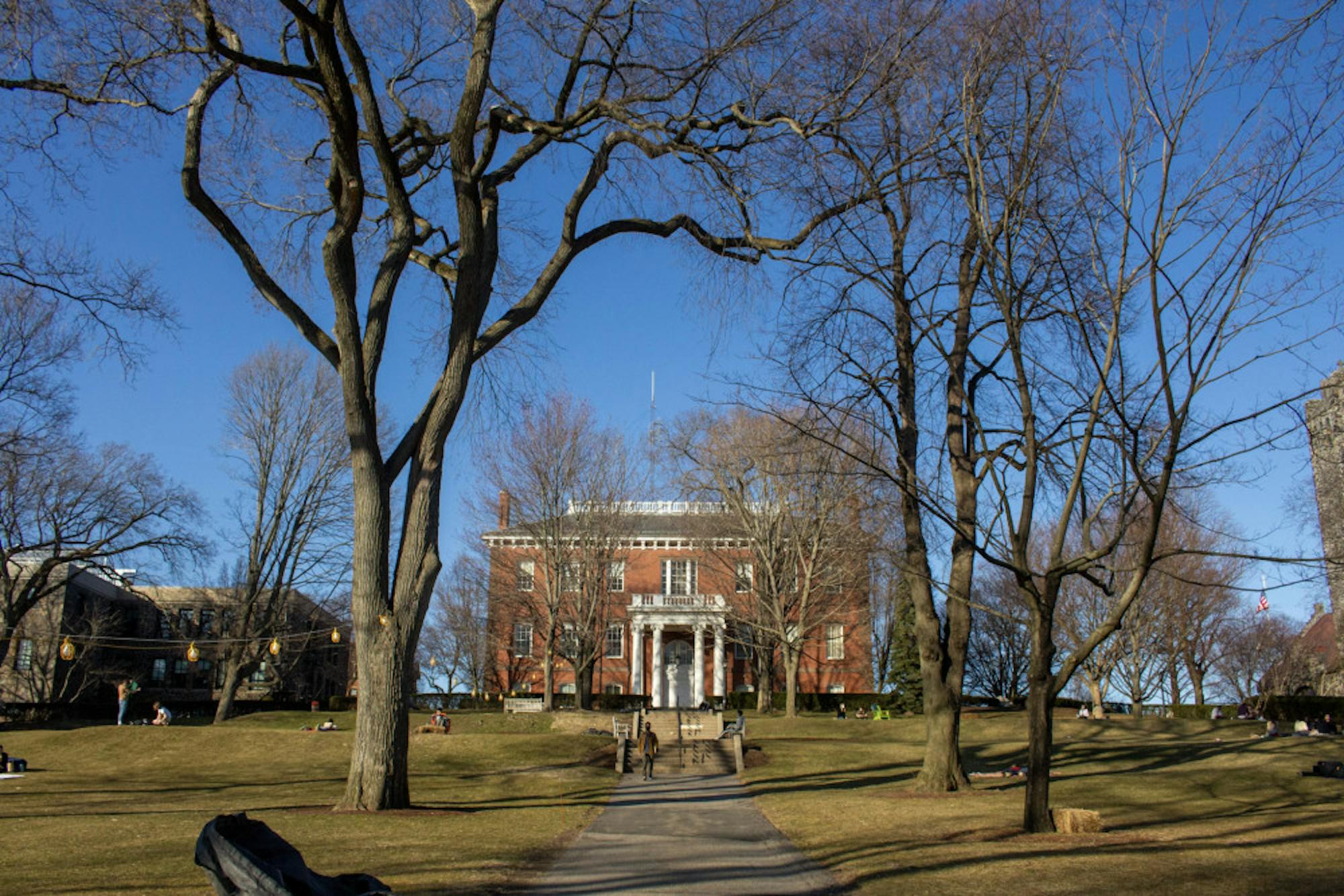TCU Senatevoted unanimously in a virtual meeting on March 14 to pass aresolution calling on the university to divest from corporations that profit off of the private prison system. Tufts for a Racially Equitable Endowment introduced the resolution in response to the university's inaction following a November 2020 referendum, which similarly called on the university to divest from private prisons. The referendum passedwith overwhelming support from members of the undergraduate student body who voted.
The resolution cites background information about the prison industrial complex, the contribution of corporations to the War on Drugs and the continued “systematic incarceration of marginalized groups.”TREE also noted in the resolution that numerous corporations and institutions have already committed to cutting ties with the private prison industry, including major banks like Chase Bank and Bank of America, and private universities such as Columbia University. The purpose of the resolution is to encourage Tufts to do the same.
Mabel Pence, a member of TREE who helped introduce the resolution, explained why they chose to engage in additional action this semester after last semester's referendum.
“The goal of the TCU resolution was to follow up on the referendum passing last semester, and the lack of response by the university," Pence, a junior, wrote in an email to the Daily. "We’re hoping we can further show the administration that the student body supports TREE’s demands and therefore increase the likelihood of convening the [Responsible Investment Advisory Group]."
The resolution, which acts as a follow-up to last semester’s referendum, according to Pence, was also an opportunity for TREE to elaborate on its requests.
“The resolution allowed us to go more in depth as far as the reasons why divestment is important and our specific demands, including the formation of a [RIAG],” Pence said.
According to TCU Parliamentarian Taylor Lewis, the resolution has the same essence as the referendum last semester but is intended to further demonstrate students' support for this cause.
“A resolution like this allowed the authors to make more specific requests such as the establishment of a RIAG, and calling for an equitable investing process," Lewis wrote in an email to the Daily. "Additionally, while the referendum last semester was approved of by a large percent of the student body, a resolution can further help support this cause through the support of student leaders."
The point of getting a resolution through TCU Senate is to demonstrate to the administration that it has student support, according to Sarah Wiener, president of TCU Senate.
“I think our vote serves as a snapshot in the timeline of student advocacy and sentiment around private prison divestment," Wiener wrote in an email to the Daily. "I see TREE’s resolution as evidence of student voice to be used as a lobbying tool when TREE works directly with administration and hopefully, a [RIAG]."
Passing such a resolution has the power to bring about important discussions on campus, Wiener said.
“Resolutions like this are also useful for starting conversations in the community about areas where Tufts’ public commitment to values like being an anti-racist institution are fulfilled or not,”Wiener, a senior, said.
The resolution is not binding for the university. Patrick Collins, executive director of media relations at Tufts, said that Tufts will not be taking action in response to the Senate's vote, citing the university's small percentage of indirect investments in private prisons.
“The university holds no direct investments in private prisons," Collins wrote in an email to the Daily. "When the university last reviewed its detailed holdings through commingled funds last year, the university's exposure to private prisons through commingled funds was less than 0.01% of the total portfolio.Similar to other major university endowments, nearly all of the university’s investments are held in commingled funds … managed by third parties."
He added that since commingled funds are not customizable, Tufts does not have the jurisdiction to change them.
Collins did, however, emphasize the university’s commitment to discussing the impacts of its investments.
“The university is committed to a robust exchange of ideas and concerns surrounding its fiduciary responsibility to steward its financial assets while also taking potential social impact into account when making investment decisions,” he said.
Collins underscored the institution’s openness to the creation of a RIAG.
“The process provides students with a reliable mechanism to raise concerns to the attention of trustees," Collins said. "The administration and trustees are always open to students using the RIAG process to call the University’s attention to issues of concern, and RIAG is one mechanism for helping to focus the University on a particular issue.”
Pence noted that TREE is now working on a proposal for a RIAG to be established.
Pence stressed that while members of TREE recognize the difficulty of divesting from private prisons, they nevertheless view it as necessary.
“We understand that the fact that the $72,000 currently invested is in a commingled fund may present a challenge to divestment," Pence said. "But any money invested in the private prison industry, directly or indirectly, is unethical.”






